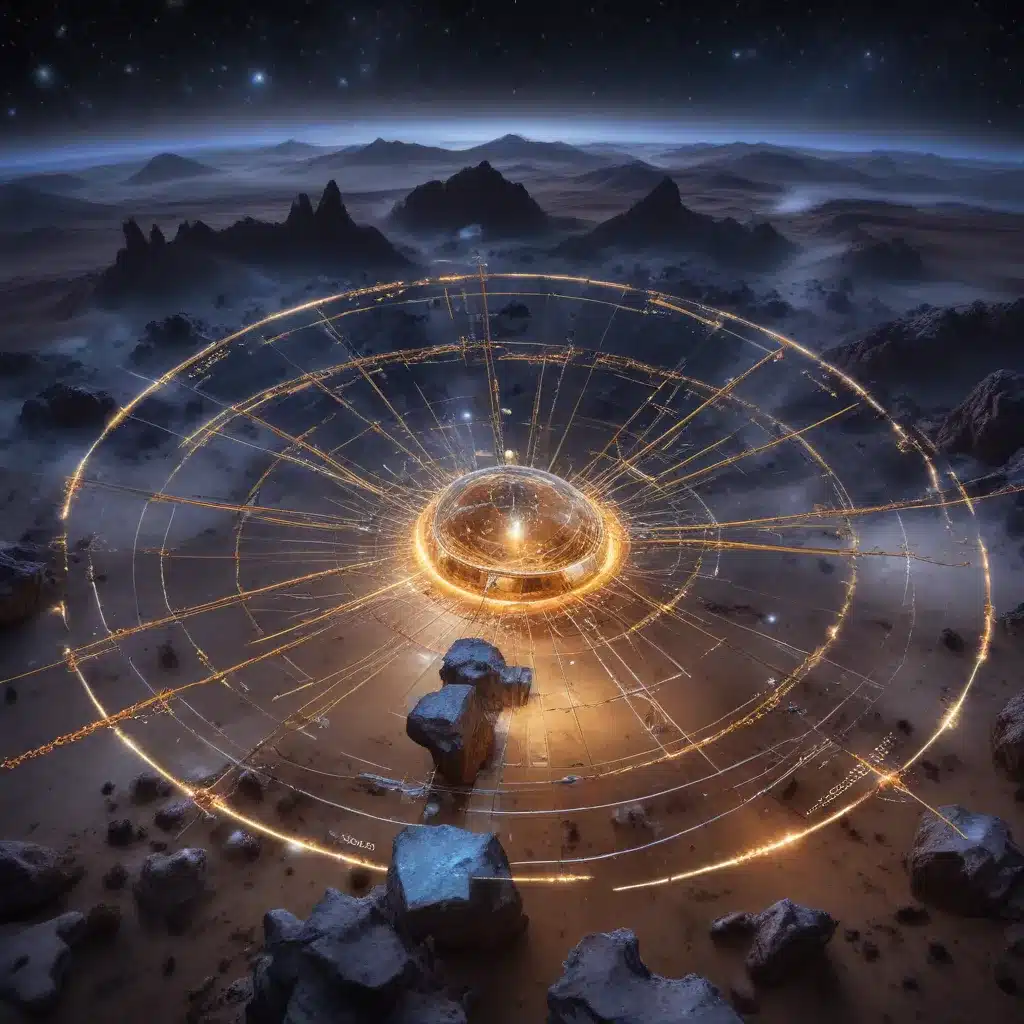
The Rise of Quantum Sensing Technologies
In the ever-evolving landscape of scientific discovery, a new frontier has emerged that promises to revolutionize our understanding of the physical world. Quantum sensing, a groundbreaking field at the intersection of quantum mechanics and sensor technology, has the potential to unlock unprecedented insights in geophysics and astronomy.
Quantum sensors are advanced devices that leverage the principles of quantum mechanics, such as superposition and entanglement, to achieve unprecedented levels of sensitivity and precision in measuring various physical quantities. By harnessing these quantum phenomena, these sensors can detect and quantify extremely subtle changes in parameters like time, position, magnetic fields, and temperature with remarkable accuracy.
This quantum-based approach to sensing represents a significant departure from classical sensor technologies, which are often limited by the inherent constraints of the physical world. Quantum sensors, on the other hand, can transcend these limitations, opening up new avenues for scientific exploration and practical applications.
Advancing Geophysical Exploration
One of the most promising applications of quantum sensing technology is in the field of geophysics. Geophysicists, who study the physical properties and processes of the Earth, have long relied on various sensing techniques to gather data and gain insights into the planet’s interior and surface features.
Gravity Gradient Sensing
Quantum sensors excel at detecting subtle variations in gravitational fields, a crucial aspect of geophysical exploration. These sensors can measure gravity gradients, or the rate of change in the gravitational field, with unprecedented precision. This capability allows for the mapping of underground structures, the detection of mineral deposits, and the monitoring of changes in the Earth’s crust, all of which are vital for resource exploration, infrastructure planning, and natural disaster mitigation.
Magnetic Field Mapping
Quantum magnetometers, a type of quantum sensor, can measure the Earth’s magnetic field with unparalleled accuracy. This is particularly useful for mapping the planet’s magnetic field, which is influenced by the movement of the Earth’s molten outer core and the interactions between the Earth’s magnetic field and the solar wind. These high-precision magnetic field measurements can provide insights into the Earth’s interior structure, its tectonic plate movements, and the dynamics of the magnetosphere, which plays a crucial role in protecting life on Earth from harmful cosmic radiation.
Seismic Monitoring
Quantum sensors can also be employed in seismic monitoring, a vital aspect of geophysical research. By detecting and analyzing minute vibrations in the Earth’s surface, these sensors can help scientists better understand the complex processes that drive tectonic plate movements, volcanic activity, and the occurrence of earthquakes. This information is crucial for improving early warning systems, mitigating the impact of natural disasters, and enhancing our understanding of the planet’s dynamic geological processes.
Revolutionizing Astronomical Observations
In the realm of astronomy, quantum sensing technologies are poised to transform the way we observe and study the cosmos. From the depths of our solar system to the farthest reaches of the universe, these advanced sensors are opening up new frontiers of exploration.
Precision Timekeeping
One of the critical applications of quantum sensing in astronomy is precision timekeeping. Atomic clocks, which rely on the precise control of atomic transitions, are essential for various astronomical applications, such as global navigation satellite systems, Very Long Baseline Interferometry (VLBI), and the synchronization of astronomical observations across multiple observatories. Quantum-based atomic clocks can achieve unprecedented levels of accuracy and stability, enabling more precise measurements of celestial phenomena and improving our understanding of the universe’s fundamental laws.
Quantum Magnetometry in Space
Quantum magnetometers are also finding their way into space-based applications, where they are used to measure the magnetic fields of planets, moons, and other celestial bodies. These high-precision measurements can provide insights into the formation and evolution of planetary magnetic fields, which are crucial for understanding the habitability of planets and the dynamics of their magnetospheres.
Gravitational Wave Detection
Quantum sensing technologies are also playing a vital role in the detection of gravitational waves, the ripples in the fabric of spacetime predicted by Einstein’s theory of general relativity. Quantum-based interferometers, such as the Laser Interferometer Gravitational-Wave Observatory (LIGO), use quantum phenomena like entanglement to achieve the extreme sensitivity required to detect these elusive signals. The ability to measure the minuscule distortions in spacetime caused by passing gravitational waves opens up new avenues for studying the most energetic events in the universe, such as the merger of black holes and neutron stars.
Overcoming Challenges and Driving Future Advancements
While the potential of quantum sensing technologies is immense, the field is not without its challenges. Achieving the necessary level of precision, stability, and scalability required for widespread adoption remains a significant hurdle. Researchers and engineers are working tirelessly to address these challenges, leveraging advancements in quantum control, cryogenic systems, and signal processing to push the boundaries of what’s possible.
As the field of quantum sensing continues to evolve, the possibilities for transformative discoveries in geophysics and astronomy are truly limitless. By unlocking new levels of sensitivity and precision, these advanced technologies are poised to uncover secrets about our planet, our solar system, and the universe beyond, expanding our understanding of the natural world and paving the way for groundbreaking scientific breakthroughs.
To stay up-to-date with the latest developments in quantum sensing and their impact on various industries, be sure to visit the IT Fix blog. Our team of seasoned IT professionals is dedicated to providing practical tips, in-depth insights, and cutting-edge information on the ever-evolving world of technology.












